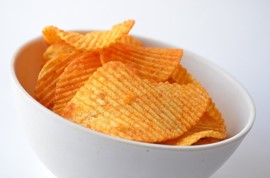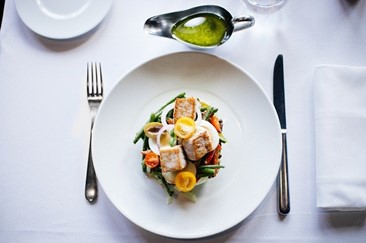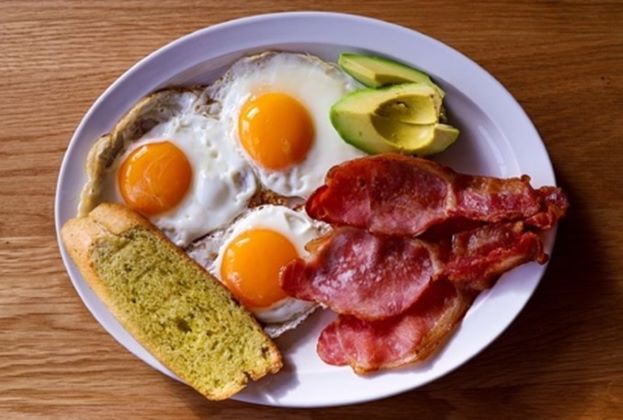
Foods Halal Consumers Miss Eating after Becoming Muslim
Following a Halal diet is an important part of religious observance for Muslims around the world. For those new to Islam, it may entail some significant changes, including avoiding pork, alcohol, and meat that is not certified Halal.
While it may sound silly, many people really miss their favorite junk foods! A surprising number of processed foods – everything from candy to baked goods to chips – contain ingredients derived from pork or animals that were not certified Halal, meaning that Muslims avoid them. Even when snack foods don’t actually contain meat, they can contain enzymes, emulsifiers, flavorings, and other additives derived from animal sources. If you follow a Halal diet and are missing sweet and salty treats, don’t despair! Many companies do offer Halal snacks, everything from beef jerky to cookies. There’s even a Halal snack box subscription! And, if there’s something you really love, write to the company and ask that they consider adding Halal certification.

Halal Candies
Gummy candies are high on the list too. If they are made with non-Halal gelatin, candies like gummy worms and bears are not Halal suitable. It’s hard when your favorite movie snacks or after-work treats are off the table, but before you start to feel too sad, there are other options! More and more companies are making vegetarian-friendly fruit snacks and gummy candy with pectin instead of gelatin. There are even some Halal-certified candies as well! For example, The Nut House, originally founded in Jordan, offers a wide range of Halal candy, and popular candy maker HARIBO has a factory in Turkey that produces Halal-certified versions of some of their most popular items. They can be tricky to find in the US, but can often be found at import stores or online.

Halal Dining
It can be hard to get used to eating out, too. Since most restaurants in the US don’t offer Halal-certified meat on their menus, many Muslims stick to vegetarian dishes and make sure to double check that no alcohol is used in the preparation. If your favorite restaurant meal was a burger, chicken wings, or barbecue, this can be a hard change! You won’t be totally out of luck, though.
Restaurants featuring cuisines from traditionally Muslim countries are more likely to offer Halal meat, and you are certain to find satisfying, flavorful dishes on the menu at any Afghani, Palestinian, Moroccan, or Indian restaurant. It’s also worth asking the owner if they would consider adding Halal meat to the menu. With enough requests, they might!
In the meantime, look up similar recipes, especially “copycat” recipes for popular restaurant dishes, that you can try at home with Halal meat you purchase yourself.

Halal Breakfast Beef
Some at-home foods are hard to give up, too. Bacon is a hard one for many people, Muslim reverts, vegetarians, and vegans alike! Aside from the taste, it’s often associated with fond memories of family breakfasts and decadent cheeseburgers. And yes, while turkey bacon can be tasty, it’s just not the same. The good news? You can find delicious, crispy, Halal-certified beef bacon at many import and specialty groceries! Beef bacon is made from cured, dried, and smoked beef belly, so it has a salty, rich flavor and a deliciously crispy texture, just similar to pork bacon. Midamar’s Beef Breakfast Strips are particularly delicious.

Halal Beverages
Because of the depth to which it is embedded in Western culture, many Revert Muslims in the US and Europe can find it difficult to give up beer and wine. Even if they don’t particularly miss the taste, the ritual of sharing a drink with friends, over a meal or to unwind, is nearly ubiquitous. However, as awareness of the harmful effects of alcohol is growing, more and more people are finding ways to replace those habits with healthier options and Revert Muslims can too! Many cultures around the world have wonderful traditions and rituals around tea and coffee. They offer a chance to relax, chat with friends and family, and savor a warm drink. Similarly, many non-drinkers enjoy creating sodas and spritzers with fruit juice, flavored syrups, and sparkling water. Some people even add iced tea or a splash of vinegar to give the drink some bitterness and complexity. You can make your own or look for Halal-certified juices and syrups. Explore some new traditions and recipes, and you will find that you can relax, socialize, and have fun while maintaining a healthy Halal lifestyle.
While it can be challenging at first, eating Halal is a great opportunity to explore more of the delicious flavors the world has to offer, and options continue to grow.

Picture credit: pixabay.com